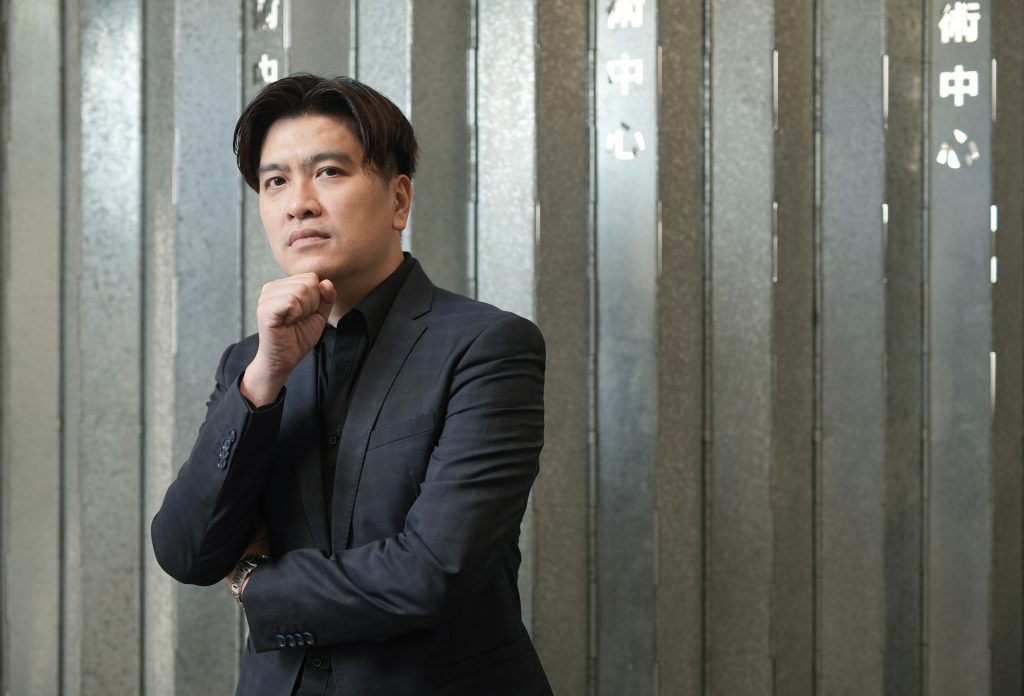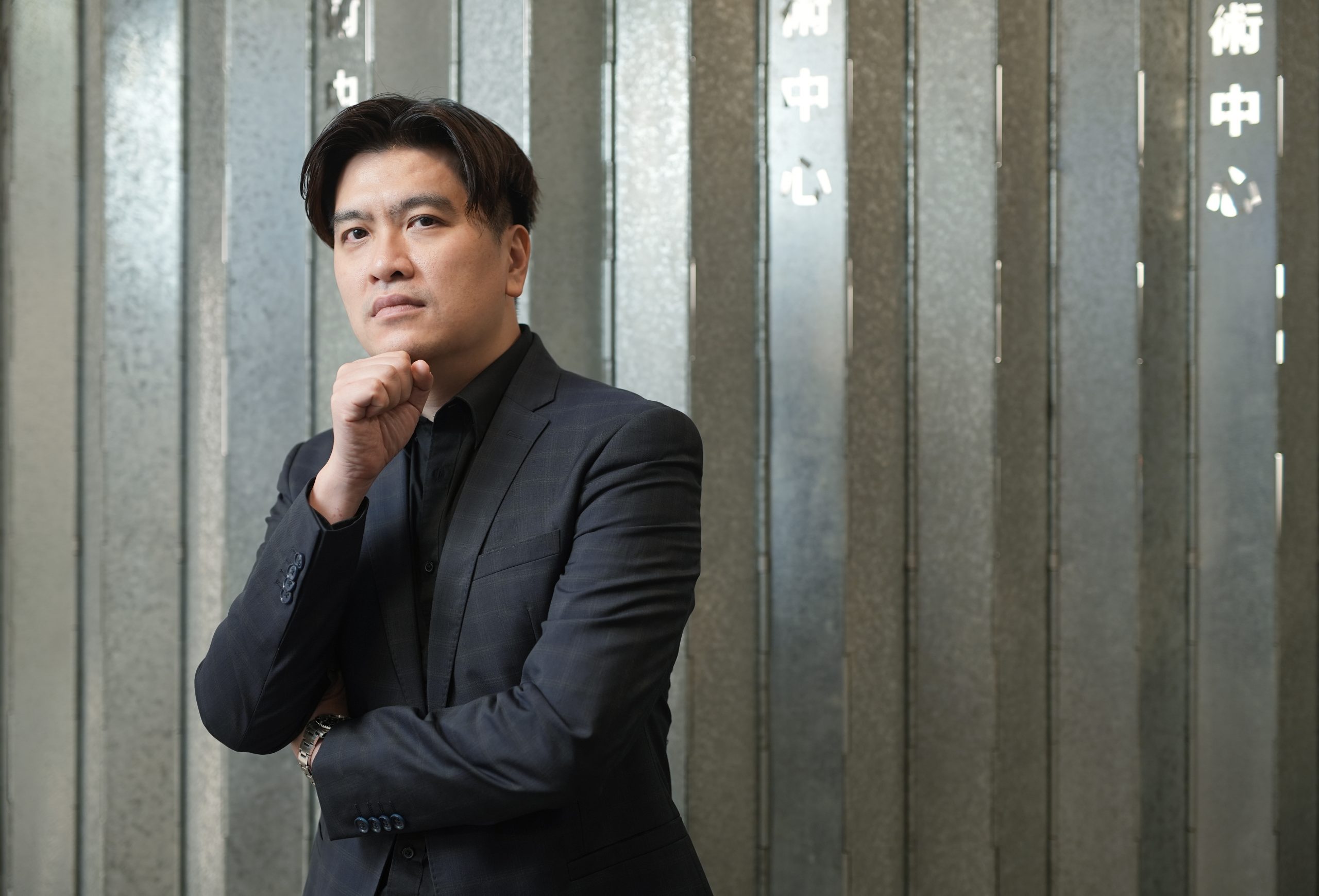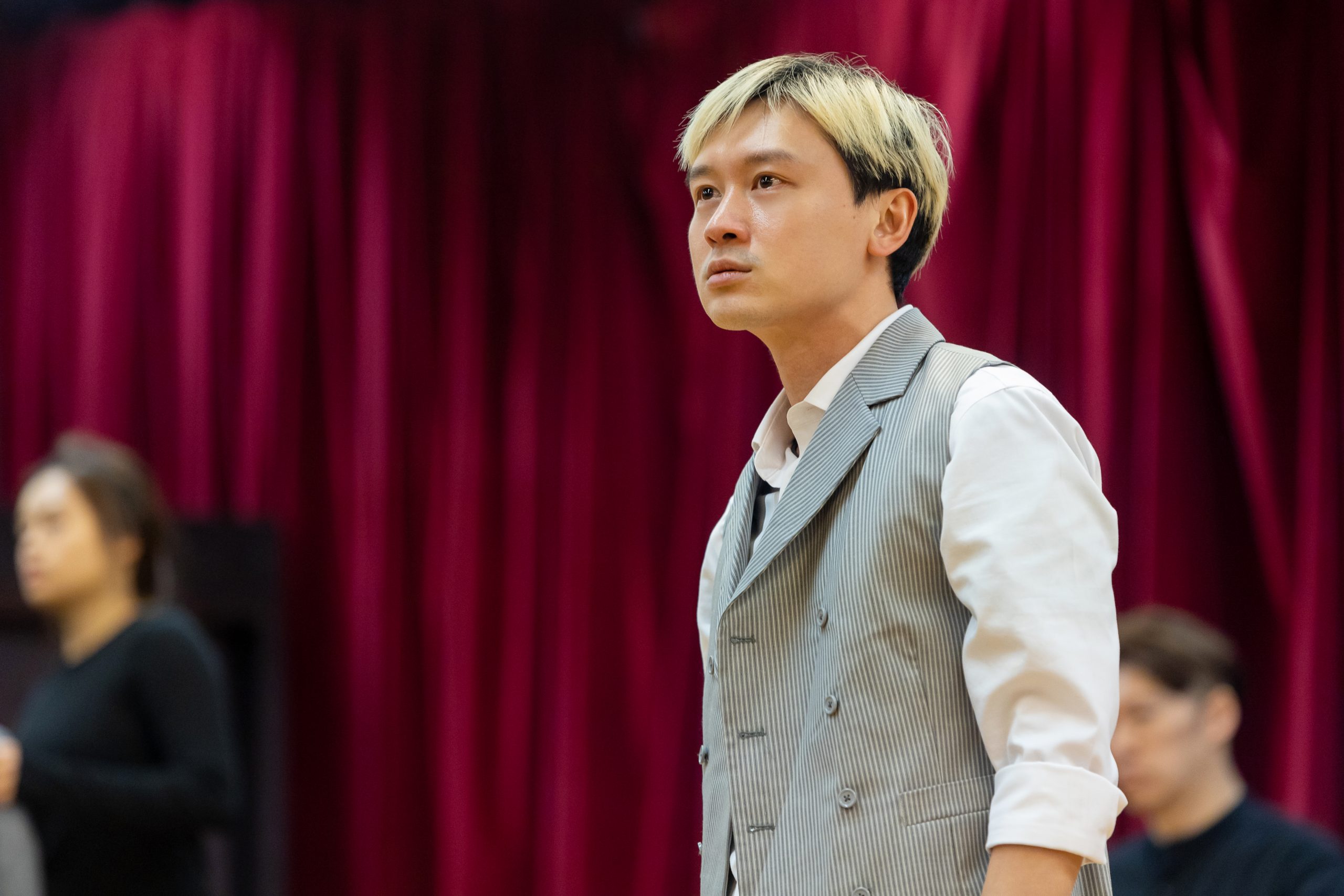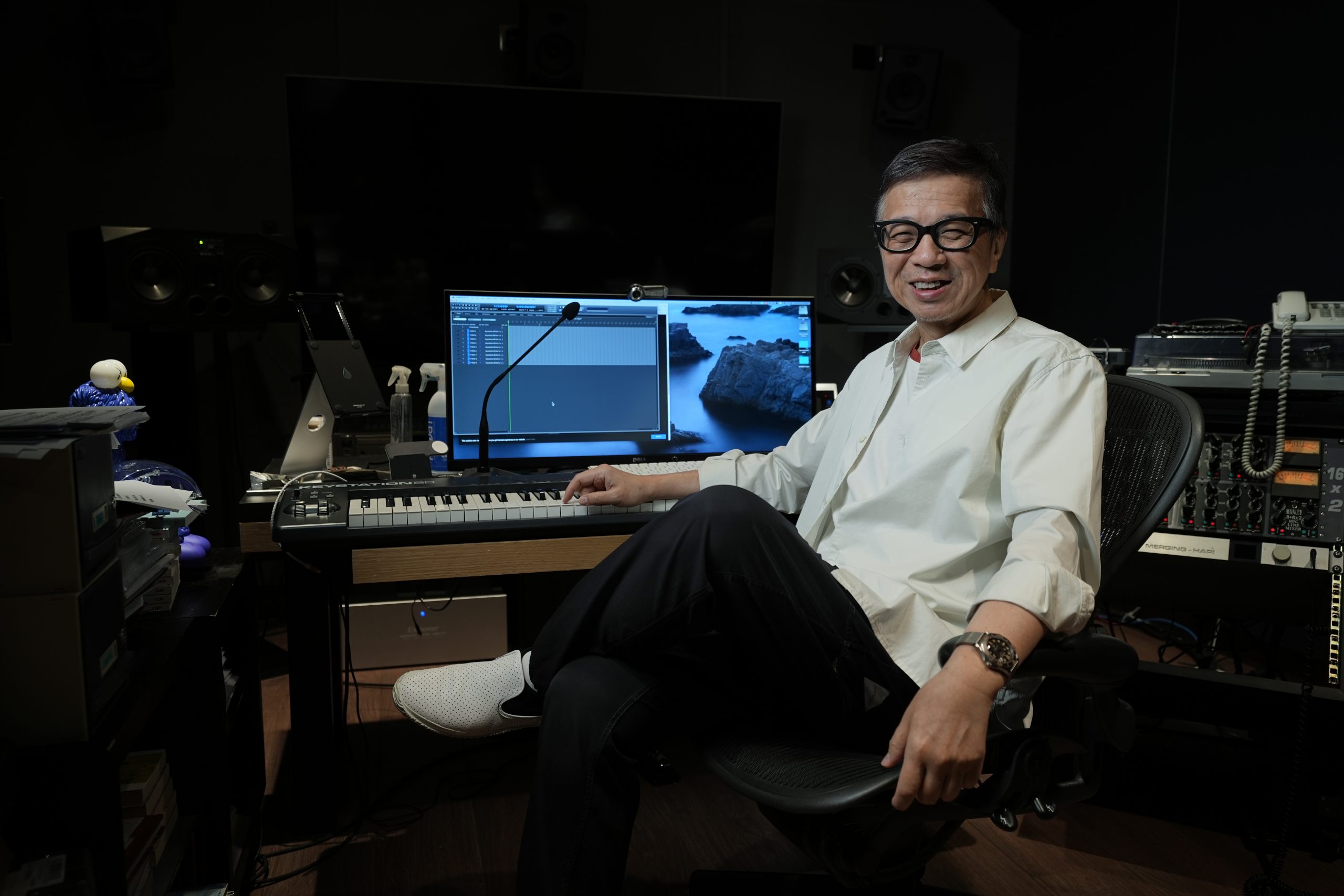
If Sunny Chan needs a new name, "Yat-sen"(daily renewal) would suit him too. Adopted by Sun Yat-sen, it was derived from a saying in "The Great Learning" from the Book of Rites: "If you can improve yourself in a day, do so every day for ceaseless self-improvement". By taking on the name, Sun Yat-sen reminded himself to practise self-reflection frequently and make constant improvements.
Chan is a director and scriptwriter who has created many memorable Hong Kong crime and detective shows, and the creation of Yat-sen— Chan's first script for a play—shows that he has also taken the idea of renewal to heart. And there have been ceaseless improvements as well—after discussions with the co-creators, composer Peter Kam and lyricist Chris Shum, and actor Ling Man-lung, Chan made constant changes to the plot. So far, it has been revised 13 times.
Retelling stories from the revolutionary days through jokes
Nothing could stop Chan from adding humour to the story. After reading the script, I teased him, "You just couldn't stop joking, could you?" But does humour belong in such a serious play? He laughs: "I think all productions can contain humorous elements. Comedy is what makes the audience like a character. I vividly remember the film New Endless Love directed by Derek Yee. The second half of the film brings on a lot of tears, but in the first half, Anita Yuen was so cute and funny. The more the audience is made to laugh, the more they like her character. So when something happened to her at the end of the film, the audience felt more pity for her."
He says the plot of Yat-sen strikes a balance between historical fact and fiction. The flat, two-dimensional character we know from textbooks is now portrayed from another perspective, becoming livelier and gaining depth. The Yat-sen musical depicts Sun Yat-sen as a naïve teen dreaming of saving the nation through an uprising. He comes together with a few other like-minded youths, who chat, poke fun at each other and even enjoying a hotpot together. "Teenagers from centuries ago would not be much different from teenagers today. There is no way they would spend the whole day talking about their feelings for their home country. Friends make fun of each other, and that's the basis for the comedic elements of the play."
Seeing revolution through the lens of Journey to the West
In narrating the revolutionary journey of Sun Yat-sen, Chan even took
inspiration from Journey to the West, boldly describing the "Four Bandits" Sun Yat-sen, Chan Siu-bak, Yau Lit and Yeung Hok-ling as Sun Wukong (The Monkey King), Tang Sanzang (the Tang monk), Zhu Bajie (Pigsy), and Sha Wujing (Sandy). "We have always remembered Journey to the West as a story, but the pilgrimage for the Buddhist scriptures was not an easy one, with the protagonists often feeling wronged and betrayed. Tang Sanzang even cut ties with Wukong." Chan believes the reference to Journey to the West highlights how the road to success is rarely easy, and often involves a great deal of suffering. "I want to provide a graphic account of how the Four Bandits overcame difficulties and grew for the audience to witness."
In events as significant as an uprising, struggles are inevitable, and the path to victory often involves traversing various grey areas. But the success of heroic figures is often recalled with over-simplification. "I read the biography Young Sun Yat-sen for a book report in primary school, and the content was so one-dimensional that it didn't feel like a human story. There is no way that such a major event could have unfolded so easily. People tend to conclude these historical tales with "and all obstacles were removed", but in reality, this is easier said than done. During the uprising, those involved may have had to sacrifice their families and be stripped of their dignity. This play aspires to put the process of removing all obstacles on full display."
To overthrow or not to overthrow— that's the question for the Four Bandits
The musical recounts in great detail the argument among the Four Bandits about whether to start an uprising or bring about reform. Chan explains that he wanted to graphicly illustrate the internal conflict of each character. "I don't believe that the Four Bandits shared identical views from the start. Each of them must have had their own considerations. It is documented in literature that they wrote to Lee Hongzhang, revealing how they did not wish to start a war. Instead, they considered starting with reform."
After conducting his research, Chan learned much more about Sun Yat-sen and no longer blindly worships him. "I saw his cowardice and found him lost. After all, he was only human."
Music pulls at the heartstrings
Chan never could get enough of music. "I enjoy musical films. I found that music amplifies emotions, always leaving me shaken." He argues for the belief that music is a catalyst for emotions using the musical Les Misérables as an example. "This story could not have been passed to the next generation through its plot alone. The movie remakes that aren't in the form of musicals all feel wrong. But I uncontrollably start crying every time those songs are incorporated in the film."
Musical films are rare among Chinese communities as creators feel they need to justify why the characters suddenly start singing. "Even Perhaps Love, directed by Peter Chan, had to explain that the singing was needed to talk about shooting movies. I have dreamed about producing a musical film without needing to provide explanations, but every boss I have met with asked me not to even think about it, because there have been no such success stories in Chinese films."
With Yat-sen, Sunny Chan is halfway to achieving his dreams. Let's see if this musical will change his bosses' minds.
Yat-sen Musical
Detail: https://www.hk.artsfestival.org/en/programme/yat_sen
Yat-sen Musical was part of the 2021 Jockey Club Local Creative Talents Series







